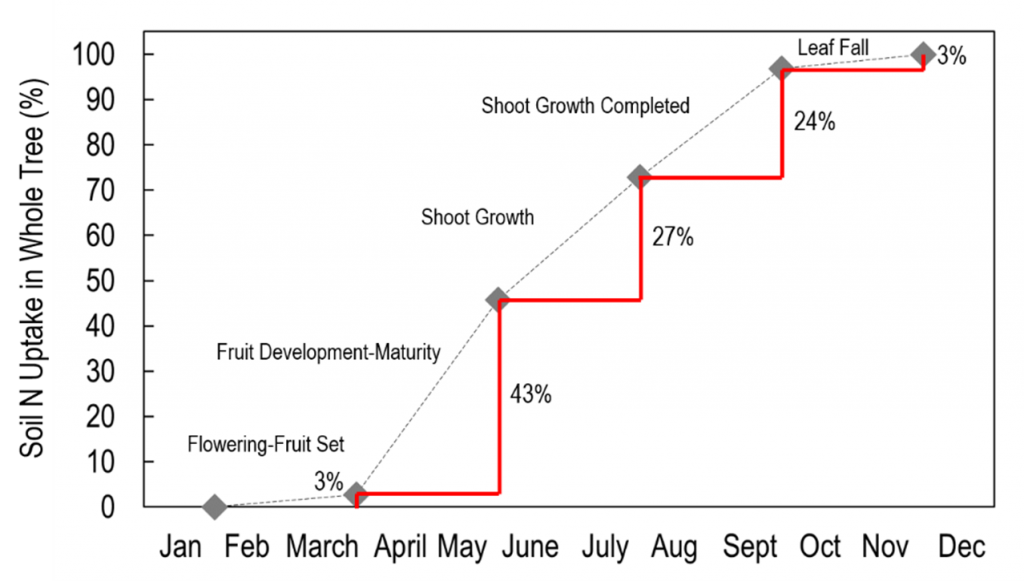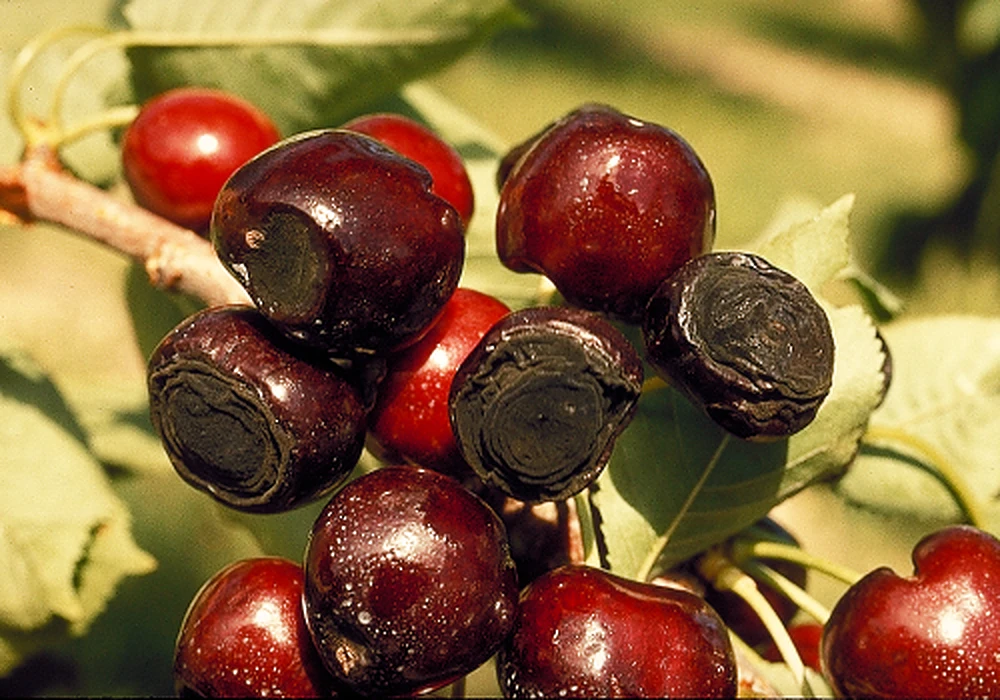Prognosticated increases in annual temperatures and growth degrees-day (GDD) will have a substantial impact on fruit development stages such as shoot growth, blossoming, and harvesting time.
To maximize the adaptation of the cherry industry to future climate change scenarios, it is necessary to develop decision-making tools that optimise agronomic management, including fertiliser application, irrigation scheduling, and pest and disease control.
Therefore, phenological stage prediction through biomathematical models can serve as a dependable instrument for agronomic management. Phenological models commonly simulate phenological stages through the utilisation of heat accumulation (thermal time) or growth degrees-day.
The purpose of the research conducted in collaboration between the University of Talca and the Department of research, development and innovation in Curicò (Chile) was to develop and validate phenology models for eight sweet cherry varieties growing in the Maule Region of Chile: Sam, Lapins, Rainier, Royal D, Santina, Regina, Kordia, and Sweet Heart.
The models utilised growing degree days as their foundation, and to incorporate the randomization introduced by measurement errors that could impact the prediction of phenological states, a stochastic monomolecular model was implemented. Four vegetative seasons were utilised to gather data to compile a dataset of phenological stages, from 2017 to 2021.
The findings indicated that the modified phenological scale of BBCH and GDD exhibited a statistically significant correlation (R2 values ranging from 0.96 to 0.98), encompassing all eight varieties. The variation of mean absolute error, root mean square error and model efficiency values was low during model validation. Lastly, the modified scale of BBCH was estimated by the monomolecular model with an error rate of less than 2%.
Furthermore, the incorporation of a stochastic methodology incorporates an element of unpredictability and uncertainty into the monomolecular models, mirroring the natural fluctuations and inherent variability that are observed during phenological development. Specifically, during the harvest stage, this analysis revealed that random disturbances can result in both underestimation and overestimation of phenological stages, thereby introducing uncertainty.
The stochastic monomolecular approach facilitates an enhanced comprehension of the prerequisites of crop phenology, thereby furnishing invaluable data for the purpose of monitoring crop development and enabling informed decision-making agricultural management decisions.
Nonetheless, it is essential to recognise that the selection of upper and lower limit temperatures for sweet cherry cultivation in the face of future climate change scenarios could be a major source of uncertainty. In relation to this subject, it is critical to recognise that frosts possess the capacity to alter the base limit temperature, while heatwaves can exert a substantial impact on the upper limit temperature.
By incorporating statistical and mechanistic modelling techniques, this study has furnished researchers with an all-encompassing comprehension of the phenology of cherries. Nevertheless, in order to incorporate the consequences of non-linear interactions involving heat accumulation, further model validation becomes necessary.
Source: William Campillay-Llanos, Samuel Ortega-Farias, Luis Ahumada-Orellana, Development and validation of phenological models for eight varieties of sweet cherry (Prunus avium L.) growing under Mediterranean climate condition, Scientia Horticulturae, Volume 326, 2024, https://doi.org/10.1016/j.scienta.2023.112711.
Melissa Venturi
University of Bologna (IT)
Cherry Times - All rights reserved










